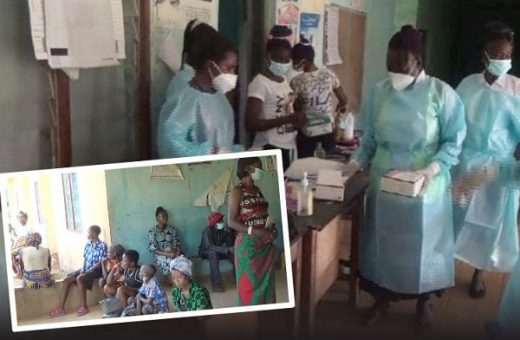
In the remote community of Ndibokote, Ebonyi State, the recent burial of a cholera victim has triggered an outbreak that has since claimed at least 28 lives. This tragedy underscores the dire lack of clean water and adequate health facilities in the area, with poor sanitation and limited access to potable water worsening the spread.
Ndibokote, like many rural areas in Ebonyi, struggles with severe water scarcity, leaving villagers to rely on contaminated streams and ponds. Unlike urban centers, where residents can afford bottled water or boreholes, many in these rural areas are unable to access clean drinking water due to their economic challenges.
The World Health Organization (WHO) emphasizes that access to clean water and sanitation is essential to prevent diseases such as cholera, which has continued to impact Ebonyi’s rural communities. According to WHO, poor water, sanitation, and hygiene (WASH) conditions globally contribute to more than a million deaths annually, with cholera and other waterborne diseases proving particularly deadly in underserved regions.
In Ndibokote, the recent cholera outbreak began after a woman died of diarrhea and vomiting in September. Soon after her burial, others who attended began showing similar symptoms. Health worker Egodi Nwiboko reported that villagers were unaware of cholera’s symptoms and thus unknowingly facilitated its spread. Community members believe that the lack of safe drinking water, coupled with poor sanitation, allowed the outbreak to spiral.
“Without boreholes, we drink whatever water we can find, even if it is unsafe,” Egodi stated, adding that immediate government intervention is necessary to prevent further deaths. She called on authorities to establish boreholes in the community, which would offer a clean water source and help curb the spread of waterborne diseases.
Residents described how quickly the illness spread. According to Stephen Nwankpuma, a local, attendees of the burial consumed water and food prepared in unsanitary conditions, which he suspects led to the rapid transmission of cholera.
The epidemic has stretched beyond Ndibokote to nearby towns, with other affected communities including Oferekpe and Okpuitimo. In Okpuitimo alone, six deaths were reported, with over 17 residents hospitalized. Locals say that poor sanitation, a result of open defecation practices and the absence of functioning health centers, has only worsened the situation.
State health officials have since responded. Dr. Moses Ekuma, the Commissioner for Health, confirmed that 18 deaths and over 80 cases were reported across three local government areas. He noted that the government has collaborated with organizations such as UNICEF and the WHO to provide medical aid, supplies, and transport for patients. Ekuma urged residents to adopt better hygiene practices, seek immediate medical attention if they exhibit symptoms, and avoid using untreated water sources.
Community leaders like youth representative Moses Nwaebonyi expressed frustration over the lack of social amenities. “Our only water sources are streams and ponds, both contaminated. We desperately need access to clean water and better roads to reach health facilities,” he said.
In response, the state government has pledged to increase the number of functional boreholes and improve sanitation. Commissioner for Water Resources Chinedu Nkah confirmed efforts to revitalize the Ebonyi State Rural Water and Sanitation Agency, with plans to install boreholes and toilets in the most affected communities to prevent future outbreaks.
With cholera cases still present and limited infrastructure improvements, residents continue to call on the government to prioritize water and healthcare access to safeguard their health and prevent further loss of life.




















Comments